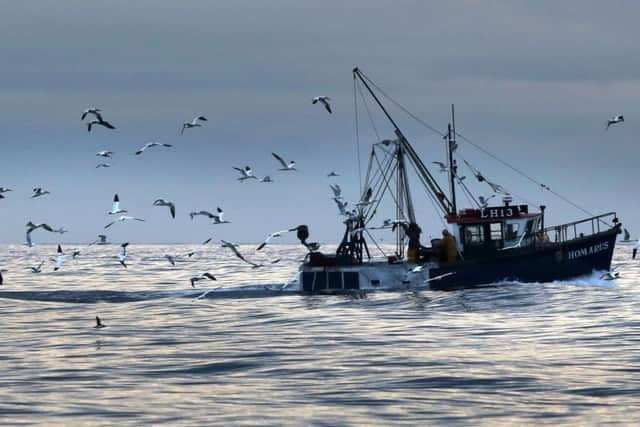Five families control 33% of Scottish fishing rights
The same families, who all appear in the Sunday Times Rich List, own more than a quarter of the UK’s total catch allowance.
The findings are revealed in landmark study by Greenpeace’s Unearthed investigations unit, which for the first time maps out the ownership and distribution of fishing quota across UK waters.
Advertisement
Hide AdAdvertisement
Hide AdThe report also shows that 13 out of the 25 biggest stakeholders across the UK were linked to the Blackfish scandal, one of the biggest criminal overfishing cases to reach British courts.


The study shows the top five power families also have investments in companies and fishing vessel partnerships that hold further stakes in the UK quota, meaning they have influence over 37 per cent of the total rights.
It found those with the biggest allocations of quota can make millions of pounds leasing their rights without casting a net.
The report highlights how a company in Northern Ireland, which holds more than half the nation’s quota, recently got rid of its boat but earned £7 million in a year from its quota while waiting for a new one.
Scotland is the UK’s largest fishing nation, with two-thirds of all quota. The concentration of ownership here is most acute, with the five biggest players holding 45 per cent of the Scottish quota once stakes and shares in other firms are taken into account.
Campaigners say the report shows a “vastly unequal and mismanaged system”, where a tiny minority of wealthy families control huge swathes of fishing rights to the detriment of local fishermen.
They have branded the situation a “national disgrace”.
Will McCallum, head of oceans at Greenpeace UK, said: “This stunning sell-off of British waters by our own government is a national disgrace and an economic, social and environmental tragedy. Successive governments have presided over a monumental mismanagement of this precious public resource, destroying the livelihoods of local inshore fishermen, eroding coastal communities and encouraging unsustainable fishing, while allowing a wealthy cabal of fishing barons to become the UK’s Codfathers.”
But industry leaders have rejected the claims, accusing Greenpeace of “painting a completely false picture of the UK fishing industry”.
Advertisement
Hide AdAdvertisement
Hide AdBertie Armstrong, chief executive of the Scottish Fishermen’s Federation, insists sustainability is a key priority for today’s fishing fleet and fewer large vessels are better for the environment than lots of smaller ones.
He added: “The only thing that has eroded our coastal communities is a blatantly inequitable EU Common Fisheries Policy, which awards other fishing nations 60 per cent of our fish stocks.
“Instead of focusing on the events of well over a decade ago to carry out a hatchet job, Greenpeace should be crediting the industry for its forward-thinking approach.”